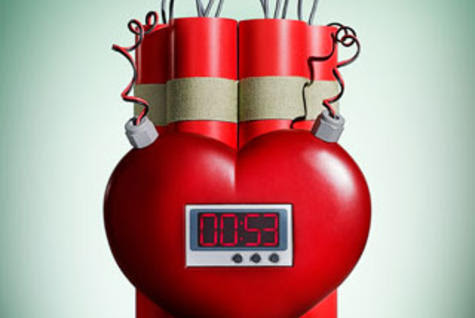If you have ever had any doubt about the mind-body connection or the effect of emotional stress on your system, scientists have “discovered” the Broken Heart Syndrome. Named from the Japanese “tako tsubo” (octopus trap), the syndrome causes weakness and bulging at the apex of the heart making it look like an octopus trap and causing possible heart failure.
Also known as Apical Ballooning Syndrome, the typical presentation is chest pain after hearing extreme bad news, like the death of a loved one. In the emergency room, EKG (electrocardiogram) and blood tests are similar to a traditional heart attack caused by blockages in the vessels that supply the heart. Cardiac catheterization to look at the vessels of the heart often shows no significant blockage, ruling out a traditional heart attack. Dysfunctional heart muscle (cardiomyopathy) can lead to symptoms of heart failure where the heart cannot pump blood effectively. Although serious complications can occur, prognosis is better than a traditional heart attack. There is better recovery of heart function with time.
Why doesn’t this happen to everyone? While we cannot always prevent bad news, we can work on tools of resilience with emotional intelligence, mindfulness, and social support for a healthy mind and healthy body. The tools of “living the present moment” can impact your physical health.
Read more on Wikipedia and Harvard Medical School.
If acute grief and loss can actually cause heart pain and heart dysfunction, imagine how other acute or chronic emotional states can affect the body. How do you experience the strong emotions of anger, sadness, fear, shame, or even joy? Do you have healthy emotional processing skills? Do you disconnect or drown in your emotions? Or do you find balance to stay present with your emotions?
